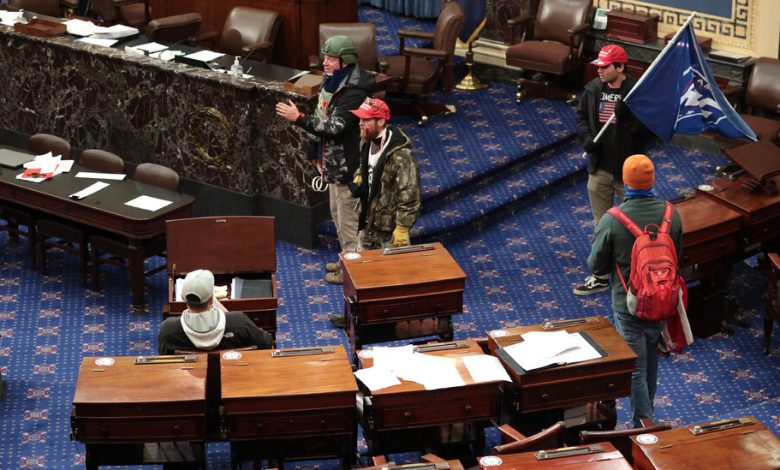Court Overturns Sentencing Enhancement Used in Jan. 6 Rioter Cases

A federal appeals court panel on Friday ordered the resentencing of a Jan. 6 rioter after overturning a trial judge’s decision to apply a longer sentence range on the grounds that the rioter had interfered with the administration of justice, potentially opening the door for scores of other convicted rioters to be resentenced on the same basis.
In its decision, the three-judge panel found that the man’s storming of the U.S. Capitol did not amount to a “substantial interference with the administration of justice.” The panel ruled that the process urging the trial judge to add time to his sentence on that basis — a step known as an enhancement — had been improperly applied.
At the same time, the court upheld his felony conviction for obstructing Congress’s certification of the electoral count. That reaffirmed the legal viability of a central charge in the cases against hundreds of rioters, as well as the federal indictment against former President Donald J. Trump.
The decision on Friday preceded a Supreme Court case in which the justices will consider the scope of that same charge — corruptly obstructing an official proceeding — and whether it can be used against Mr. Trump in two of the four counts he faces in the election interference case brought by the special counsel, Jack Smith.
The appeals court ruling on Friday may not lead to any immediate benefit or reduced sentences for other Jan. 6 defendants, though many may have to be similarly resentenced.
But depending on the Supreme Court’s ruling, the broader decision about the obstruction charge could effectively invalidate convictions and upend the continuing cases against hundreds of rioters charged with felony obstruction.